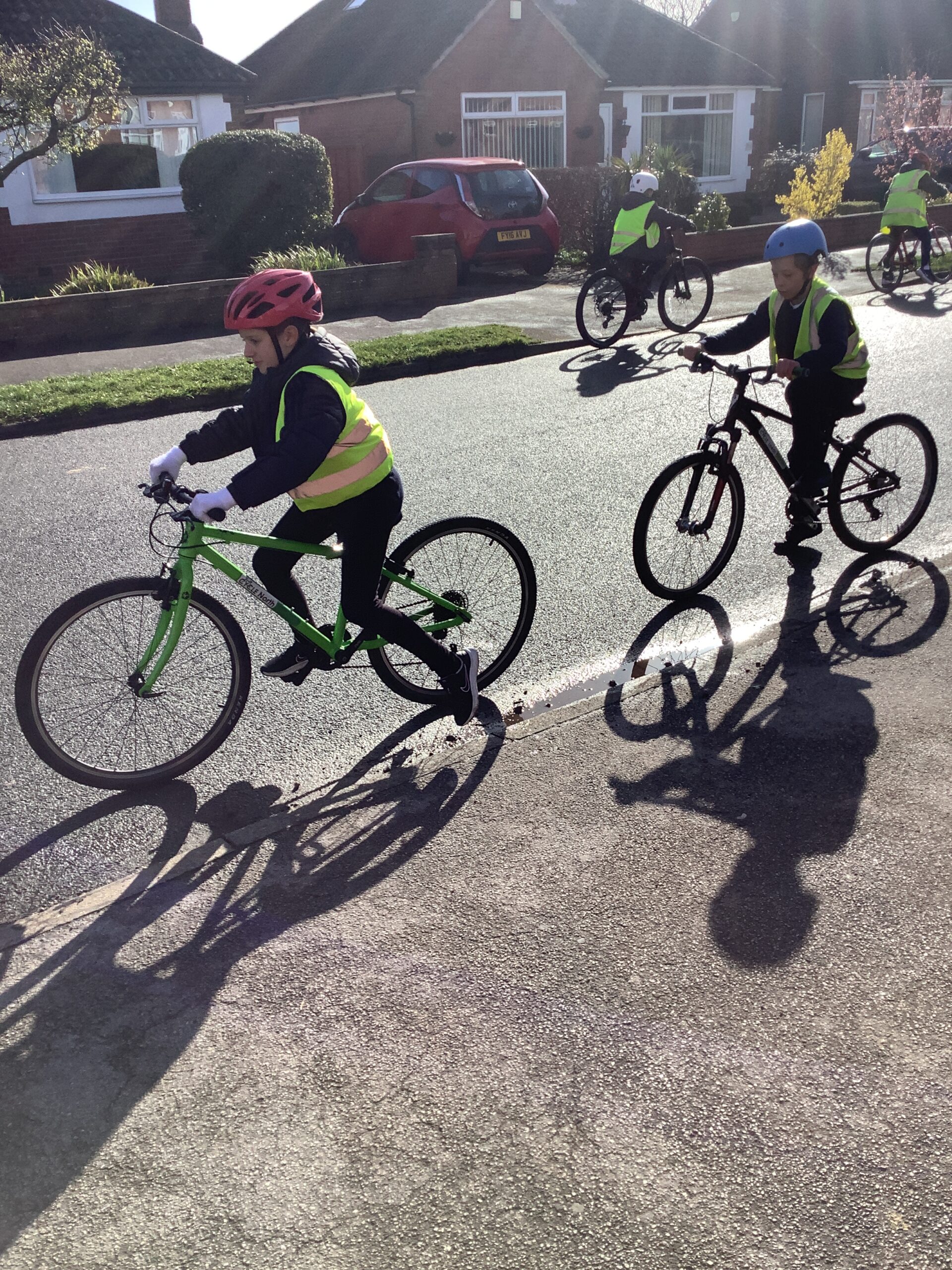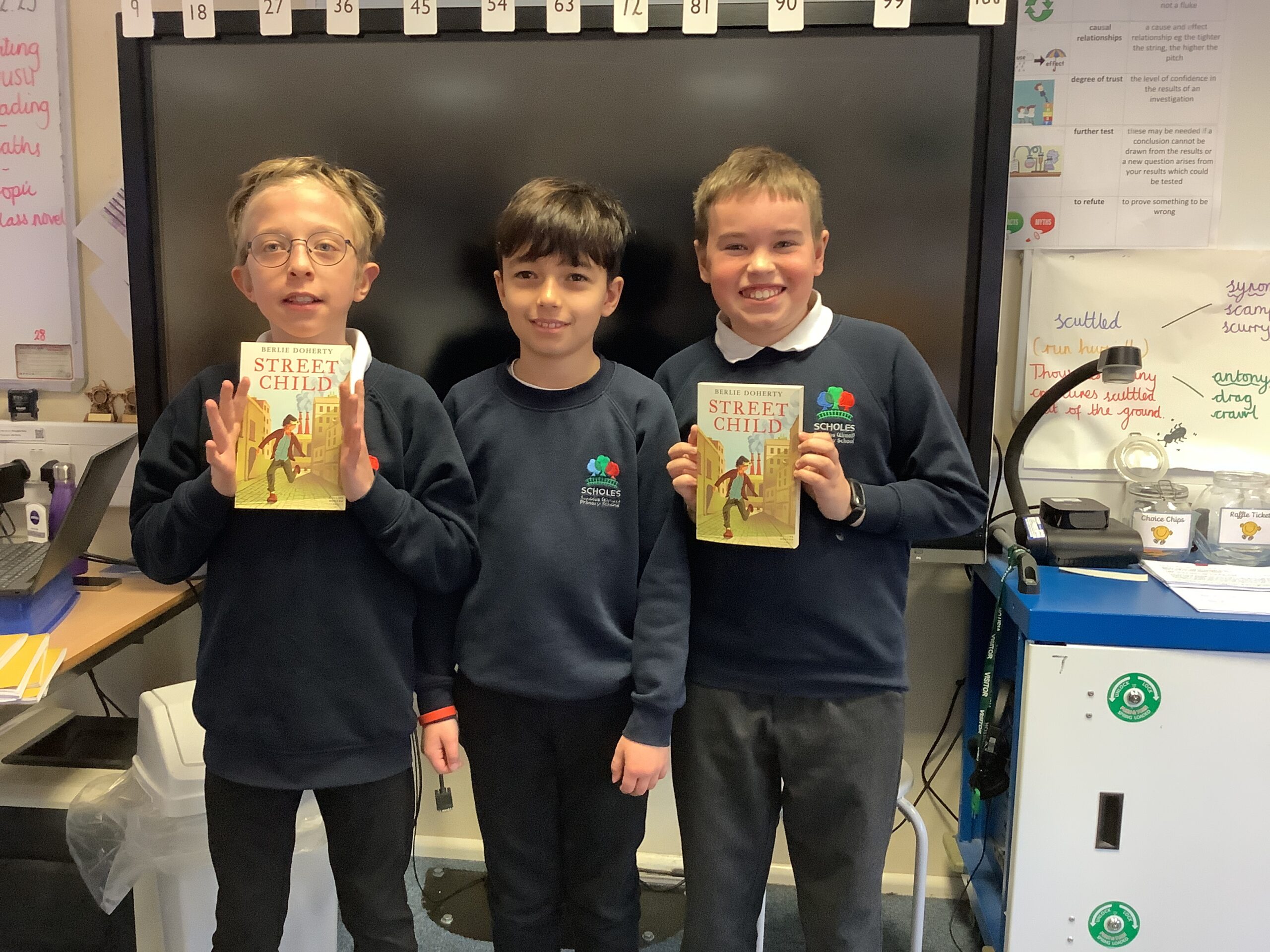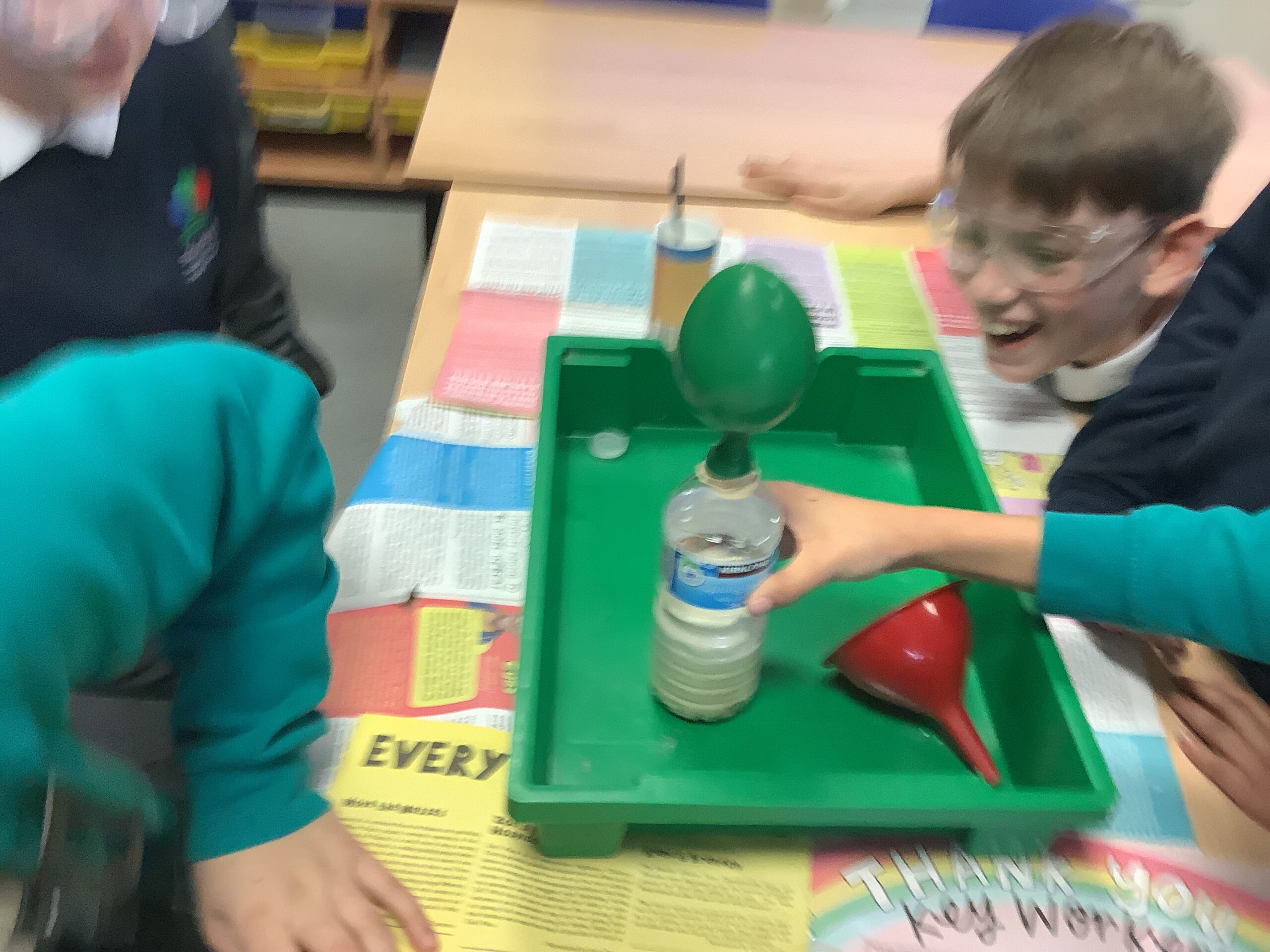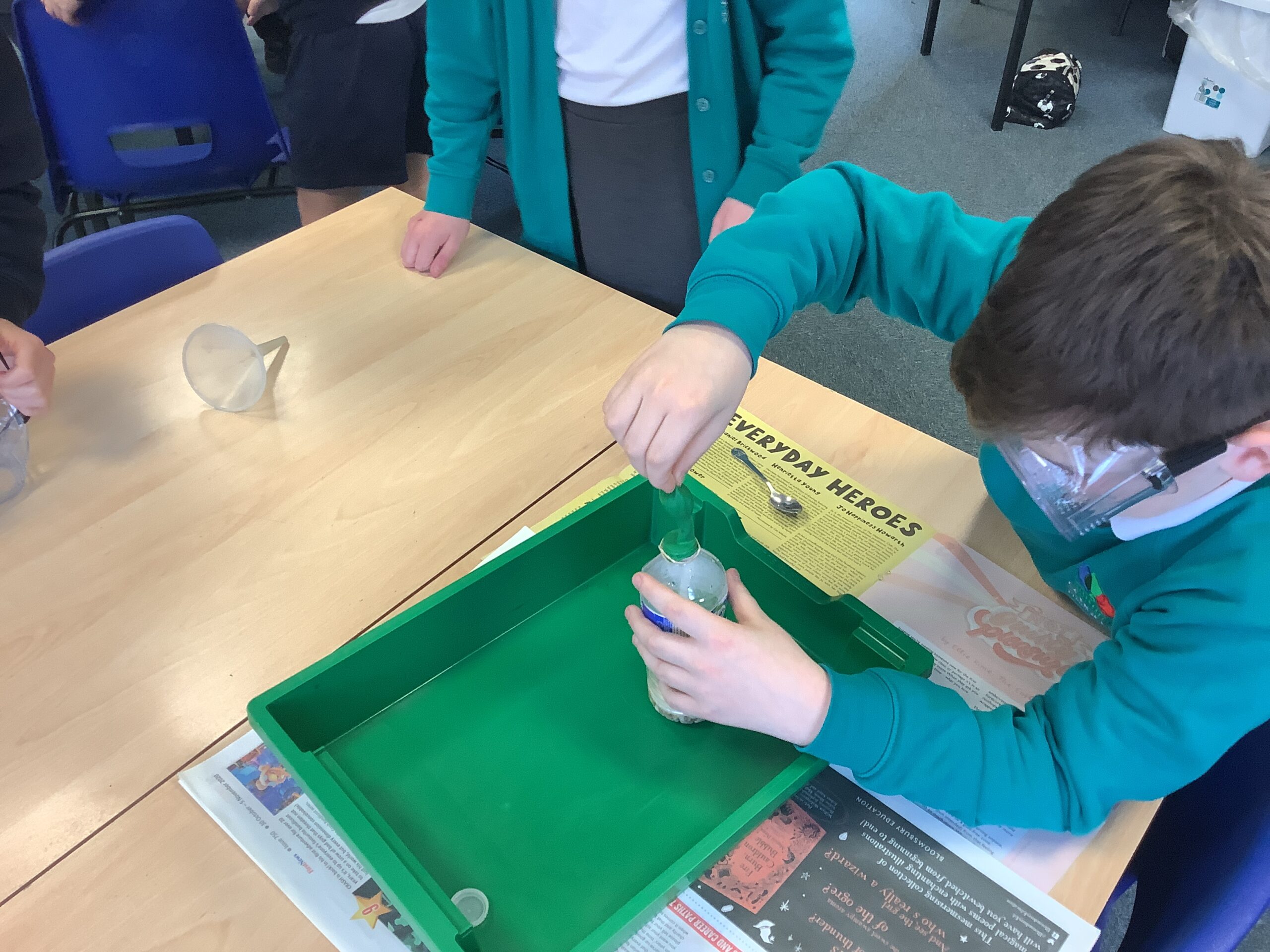This week we’ve been learning about the –cious and –tious spelling pattern. Please learn the following words for a test on Friday 24th March.
vicious
delicious
ambitious
infectious
cautious
nutritious
suspicious
fictitious
This week we’ve been learning about the –cious and –tious spelling pattern. Please learn the following words for a test on Friday 24th March.
vicious
delicious
ambitious
infectious
cautious
nutritious
suspicious
fictitious
Year 5 have been working hard over the last couple of weeks to improve their cycling skills in school. They began on the playground working on being able to stop safely, going around obstacles and learning hand signals. When they were ready, they were let lose on the roads of Scholes. On the road they were learning to get on and off a bike safely, checking it was safe to stop and set off, and being aware of parked vehicles. They battled poor weather – freezing temperatures and torrential rain – but they thoroughly enjoyed themselves.
.




This week, we’ve been learning about the –tial and –cial spelling patterns. Please learn these words for a test on Friday 17th March.
financial
social
racial
influential
preferential
confidential
residential
essential
Our circle time has been all about being the same and recognising differences in each other. The children linked up with someone in the class who they felt they didn’t know much about. They spent a few minutes swapping fun facts about each other. They then had to report back what they’d found out. We found out some brilliant facts – who was scared of spiders, who had brothers and sisters, favourite foods and favourite sports. Even I learnt a few things that I didn’t know!
We then discussed how these differences between us are really important and they make us who we are. Wouldn’t it be boring if we were all the same?
At the end of each circle time, we have an open forum in which the children can discuss, in confidence, any worries that might be bothering them. We listen without judgement and offer advice using the sentence stems ‘Would it help if you…’ or ‘Would it help if I…’ The class feel really comfortable in discussing any issues and are brilliantly empathetic towards each other – a really mature group of children.
Help at home by asking your child about circle time. Do they enjoy it? Does it help them?
This week, we’ve been adding the suffix –fer. For some ideas of how to make learning your spellings fun, see our ‘Super Spelling Strategies’ guide on the website. Learn these words for a test on Friday 10th March.
reference
referred
referral
preference
preferred
transferring
offering
offered
Yesterday we celebrated World Book Day by visiting the younger classes to enjoy a good book. Year 5 headed to Mrs Latham’s class where we were met by some very enthusiastic readers. Some year 5’s read to the younger children, whilst some of Mrs Latham’s class showed off their amazing fluent reading to their older peers. I even enjoyed Mahli reading ‘Funnybones’ to me – my favourite book when I was little. What an awesome reader she was!








We have continued to be chemists in our science learning and conducted an experiment that produced a chemical reaction. The children mixed two liquids – vinegar and warm milk. The vinegar altered the acidity in the milk and made it curdle. The children sieved the liquid to retrieve the curdled mixture and then moulded and dried it. This chemical reaction had created a type of plastic. The children recognised that this was an irreversible change as it could not be returned to its original state. We were quite amazed by the whole process and also quite overwhelmed by the weird smell that the mixture made!
Help at home: Could you recreate this experiment at home so your child can talk you through the process? Can they use any scientific vocabulary in their explanation?




This half term, the children will be bringing home a group reader book. They were given the opportunity to look at a range of books and read the blurbs. They discussed which books they liked and which they disliked. They then grouped together according to the book they’d selected. The children will still be set a target page each week and they will be choosing their weekly task – this will still be recorded in their journals. The team that reach their target page and complete their tasks well, stand a chance of being our weekly trophy winners. Who will it be this week?
Help at home: continue to read daily with your child. This will improve understanding and fluency. Reading to an adult can also increase a child’s enjoyment of a book.
This week, we have been learning about the ‘shun’ sound. This can be written as –tion, -sion, -ssion, -cian. The spellings for this week will focus on the –tion spelling pattern.
Learn these words for a test on Friday 3rd March.
profession
accommodation
appreciation
communication
persuasion
occupation
determination
pronunciation



The children have been focusing on scientific enquiry this week – looking at fair and comparative tests. They got the opportunity to see that when you mix baking powder with vinegar, it causes a chemical reaction. This reaction produces carbon dioxide. The children created this chemical reaction within a plastic bottle with a balloon attached to the top. The carbon dioxide caused the balloon to inflate. The children were able to alter the variables in the experiment and compare results. For example, some children increased the amount of baking powder, whilst others increased the amount of vinegar. We had great fun observing the results. They were able to recognise that this chemical reaction was irreversible. They also applied some previously learnt vocabulary to their explanations, such as solute and solution.
Luckily, we all survived the experiment without any big explosions!
Help at home: Can yo help your child learn the science vocabulary for this half term?
